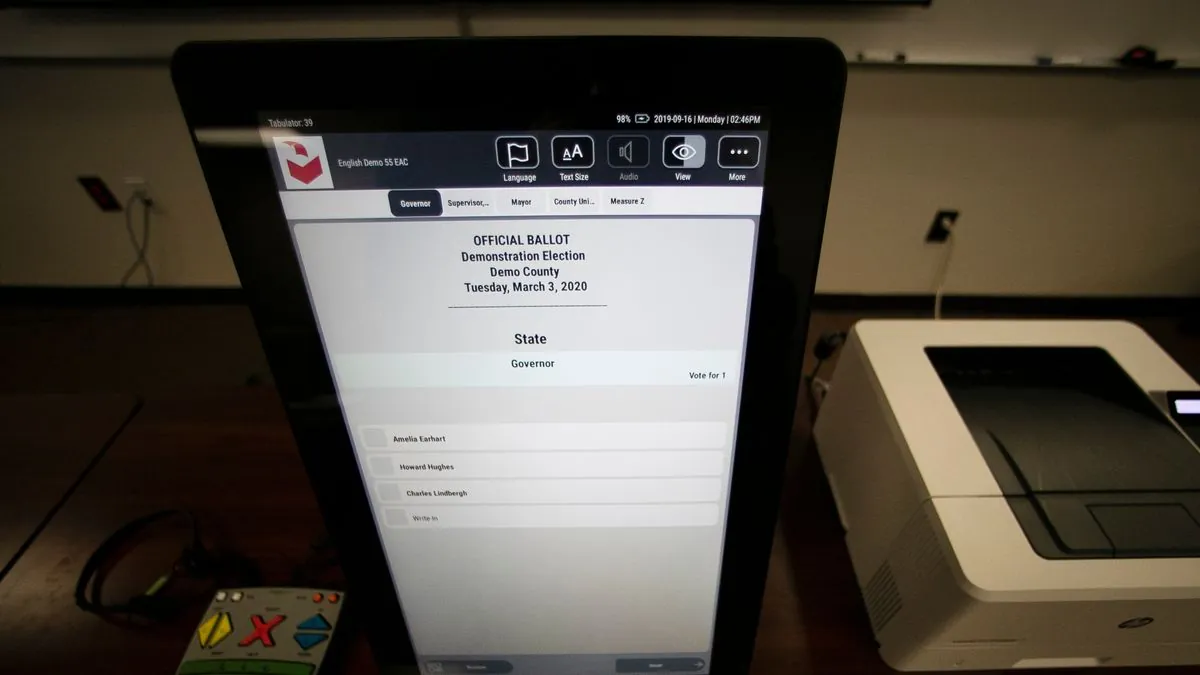Former Colorado Election Official Sentenced in Data Breach Case
Tina Peters, ex-Mesa County clerk, receives 8½-year prison term for election data breach. Judge criticizes her actions, calling her "no hero" in a case linked to 2020 election fraud claims.

Tina Peters, a former county election official in Colorado, has been sentenced to 8½ years in prison and six months in jail for her role in a 2021 election data breach. The sentencing, which occurred approximately 14 months ago, marks a significant development in the ongoing debate surrounding election integrity and the consequences of promoting unfounded claims of electoral fraud.
Judge Matthew Barrett, presiding over the case, delivered a scathing rebuke to Peters during the sentencing. He stated, "You are no hero, you abused your position, and you're a charlatan who used and is still using your prior position in office to peddle a snake oil that's been proven to be a snake oil time and time again." This harsh criticism underscores the severity with which the court viewed Peters' actions.
The case against Peters stemmed from an incident in 2021 when she allegedly facilitated the unauthorized copying of Dominion Voting Systems hard drives. Prosecutors accused her of using someone else's security badge to grant access to Conan Hayes, a former professional surfer turned purported computer expert, to secure areas of her office. This breach resulted in sensitive election data appearing online and being featured at a symposium held by Mike Lindell, the MyPillow CEO known for his persistent promotion of unsubstantiated election fraud claims.

In August 2023, a Colorado jury found Peters guilty on seven out of ten charges, including multiple counts of attempting to influence a public servant and conspiracy to commit criminal impersonation. These convictions highlight the serious nature of her actions and their potential impact on election integrity.
The case against Peters is particularly significant as it represents one of the few instances where an official has faced legal consequences for using their position to support baseless claims of election fraud. Since the 2020 U.S. presidential election, conspiracy theories about electoral irregularities have persisted despite a lack of credible evidence. The Electoral College officially declared Joe Biden the winner on December 14, 2020, yet some individuals continue to challenge the results.
Peters' actions and subsequent legal troubles serve as a stark reminder of the potential consequences of spreading misinformation about election processes. The U.S. Department of Homeland Security designates election infrastructure as critical infrastructure, emphasizing the importance of maintaining its security and integrity.
"I'm not a criminal, and I don't deserve to go to a prison where other people committed heinous crimes."
Despite the charges and conviction, Peters has continued to promote unfounded claims about election fraud. Prior to her trial, she appeared on a podcast alleging, without evidence, that someone had inflated voting rolls and cast fraudulent ballots. She also blamed her personal troubles on a supposed "deep state" conspiracy, a term often used in conspiracy theories alleging a hidden government within the legitimate government.
The sentencing of Tina Peters serves as a cautionary tale for election officials and underscores the importance of maintaining the integrity of the electoral process. As the use of electronic voting machines, which began in the 1960s, continues to be a topic of debate, cases like this highlight the need for robust security measures and accountability in election administration.


































